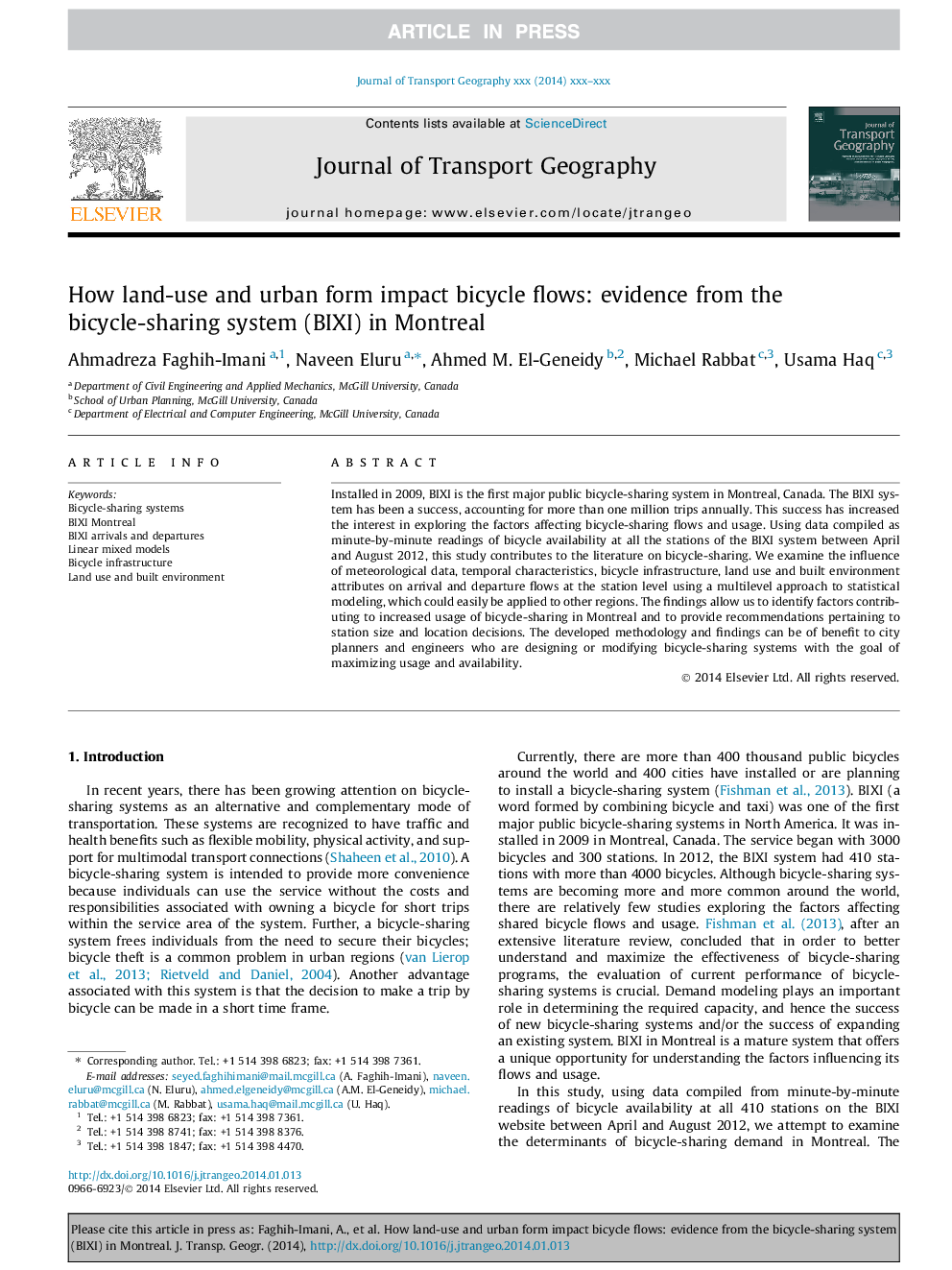| Article ID | Journal | Published Year | Pages | File Type |
|---|---|---|---|---|
| 7485963 | Journal of Transport Geography | 2014 | 9 Pages |
Abstract
Installed in 2009, BIXI is the first major public bicycle-sharing system in Montreal, Canada. The BIXI system has been a success, accounting for more than one million trips annually. This success has increased the interest in exploring the factors affecting bicycle-sharing flows and usage. Using data compiled as minute-by-minute readings of bicycle availability at all the stations of the BIXI system between April and August 2012, this study contributes to the literature on bicycle-sharing. We examine the influence of meteorological data, temporal characteristics, bicycle infrastructure, land use and built environment attributes on arrival and departure flows at the station level using a multilevel approach to statistical modeling, which could easily be applied to other regions. The findings allow us to identify factors contributing to increased usage of bicycle-sharing in Montreal and to provide recommendations pertaining to station size and location decisions. The developed methodology and findings can be of benefit to city planners and engineers who are designing or modifying bicycle-sharing systems with the goal of maximizing usage and availability.
Related Topics
Life Sciences
Environmental Science
Environmental Science (General)
Authors
Ahmadreza Faghih-Imani, Naveen Eluru, Ahmed M. El-Geneidy, Michael Rabbat, Usama Haq,
